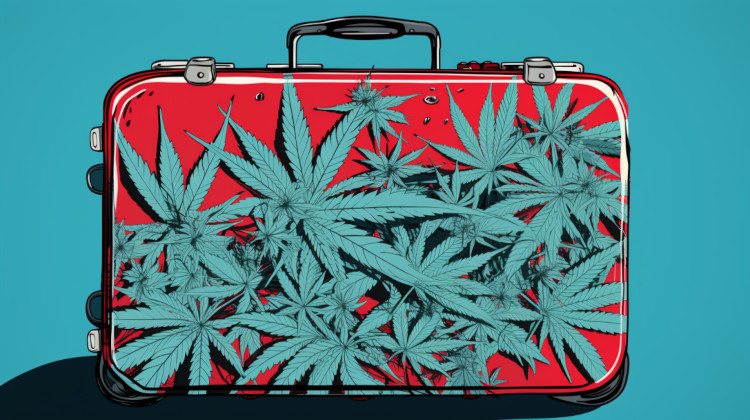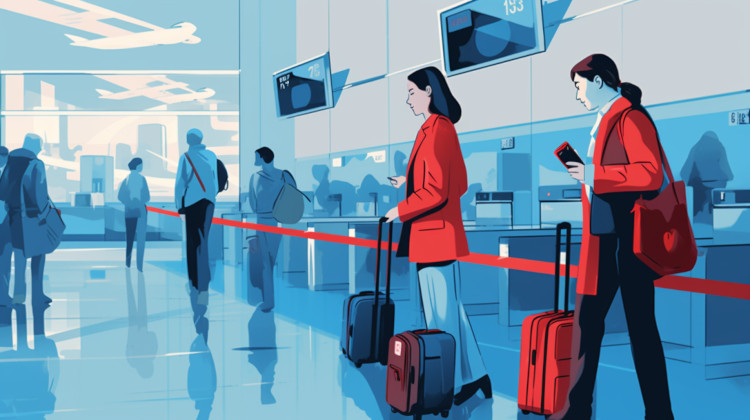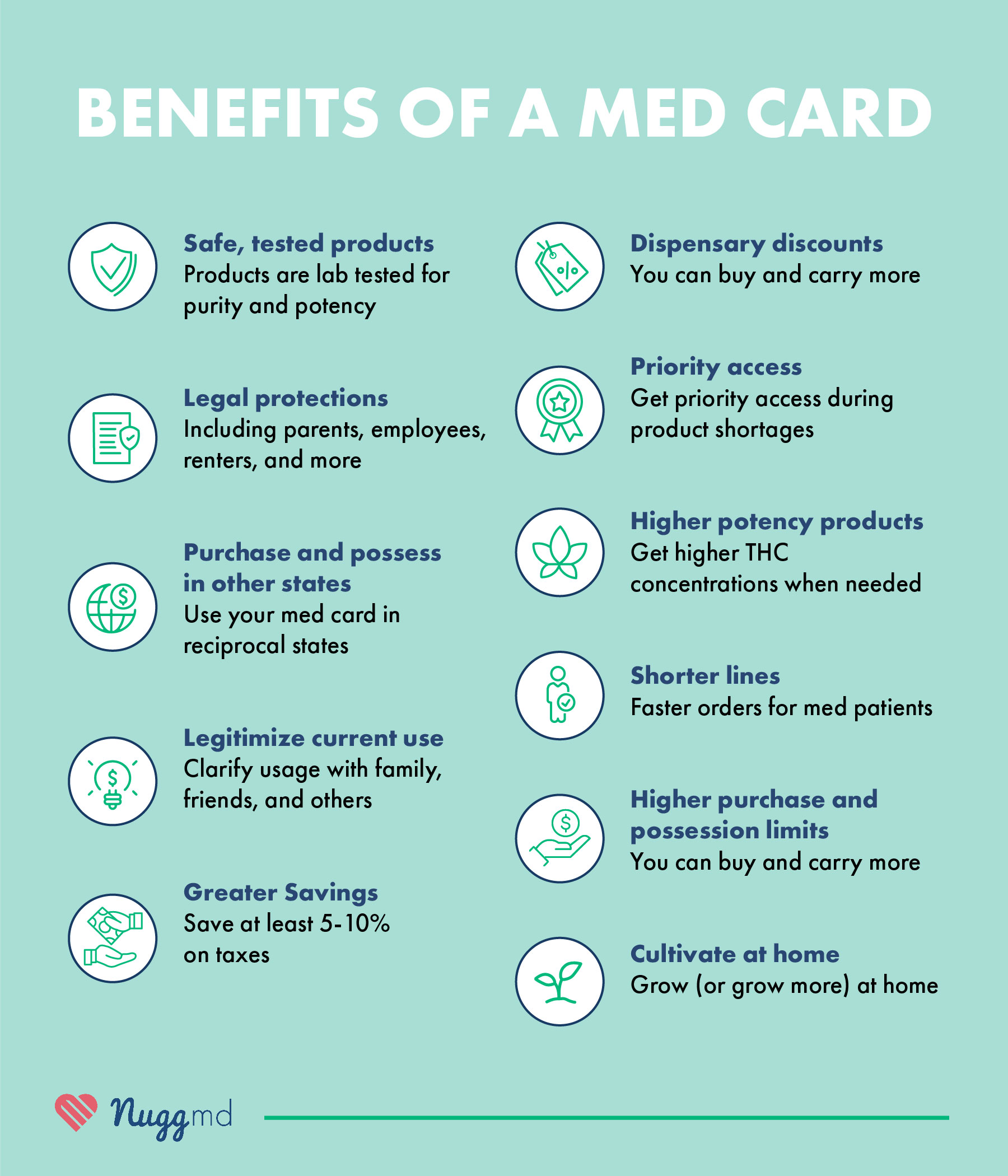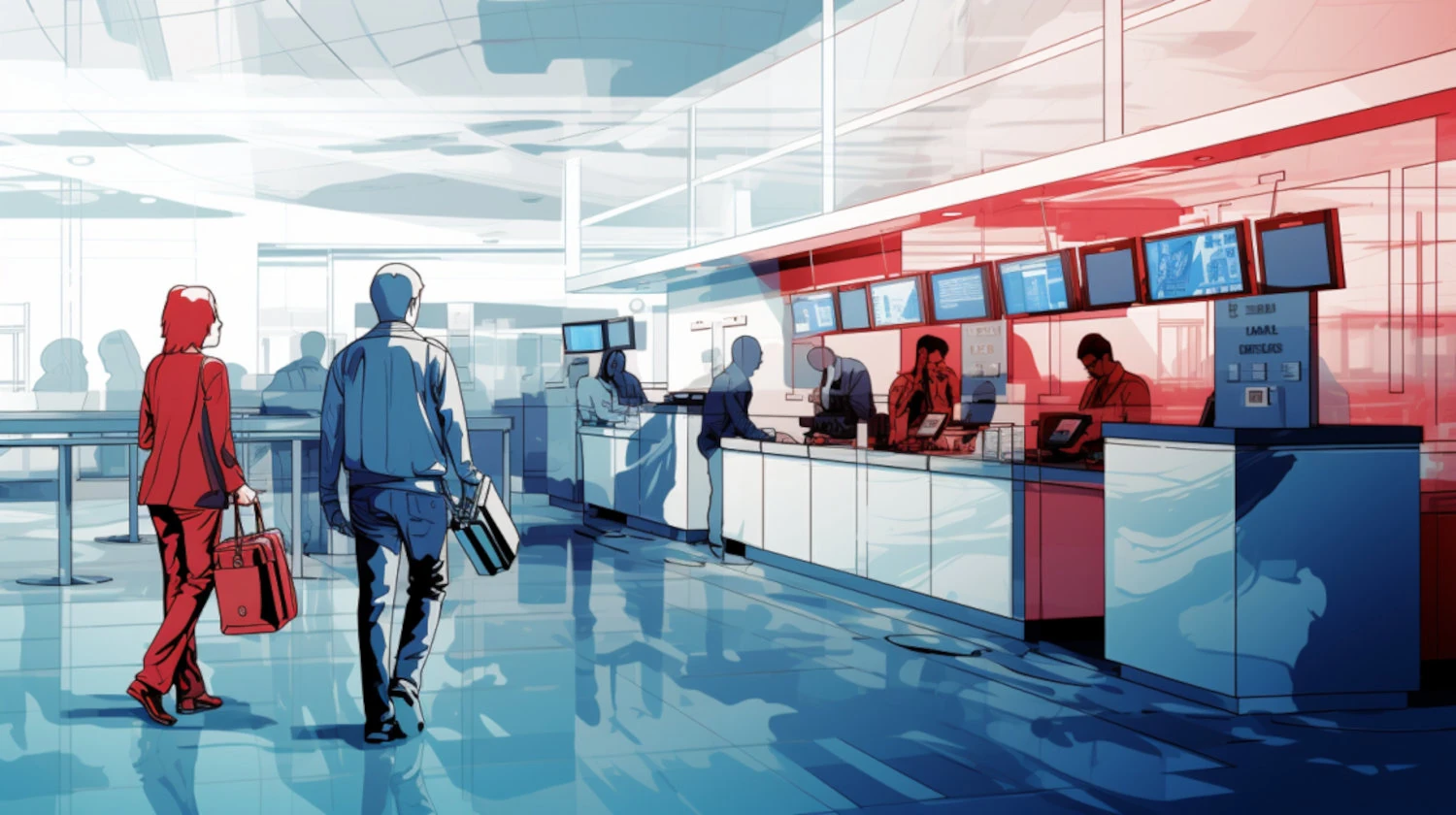In This Article
- Ways Out-of-State Visitors Can Get Medical Cannabis
- What Is An Out-of-State Patient License?
- Can I Use My Medical Marijuana Card in Other States?
- (Reciprocity) What States Allow Out-Of-State Medical Cards
- (Temporary In-State Med Card) Medical Cannabis States That Require Out-of-State Patients to Apply for a Temporary Card
- States with Adult-Use Recreational Cannabis Sales
- States with NO Cannabis Access for Out-of-State Med Patients
- What You Should Do Before Traveling as a Patient
- Does California Accept Out-of-State MMJ cards?
- How Can I Get a Medical Marijuana Card?
- Conclusion
Key Takeaways About MMJ Reciprocity
- Several states recognize out-of-state medical cannabis cards or offer temporary cards to traveling patients.
- Patients traveling to states with adult-use recreational cannabis programs can buy cannabis at any licensed recreational dispensary.
- Having a medical cannabis card will allow better access to cannabis when traveling to a different state.
Cannabis laws in the U.S. are a complex patchwork that often leave cannabis patients wondering, “What states allow out-of-state medical cards?” While some states like Nevada, Maine, Louisiana, and New Jersey are welcoming to out-of-state patients, others like Florida, Texas, and Wisconsin don't allow out-of-state access at all. So, checking state laws before you travel is essential.
Traveling across state lines with cannabis is illegal anywhere in the U.S., even if you are holding a medical marijuana card. This means that you’ll need to leave your cannabis products at home when traveling and try to obtain some at your destination legally.
Ways Out-of-State Visitors Can Get Medical Cannabis

There are three main ways that out-of-state cannabis patients can access medical cannabis legally.
- Reciprocity
- Temporary in-state cards for visitors
- Adult-use (recreational) sales
In some cases, states have decriminalized possession for patients with valid out-of-state medical marijuana cards; however, they still aren’t permitted to make legal purchases.
What Is An Out-of-State Patient License?
While not every state is willing to recognize other states’ medical marijuana cards, some are willing to provide temporary access to visiting patients. These states generally require the visiting patient to see an in-state doctor and complete a similar certification process to the in-state resident program.
Out-of-state medical cannabis licenses aren’t always practical for short trips, but they’re ideal for patients planning an extended stay. Most out-of-state licenses are only valid for a few weeks to a few months.
Can I Use My Medical Marijuana Card in Other States?

Reciprocity laws are a state’s way of acknowledging and honoring another state’s medical cannabis patients. When traveling to a state with reciprocity laws, there’s a good chance that cardholders can access that state’s medical cannabis program in some form.
These laws aren’t without limitations. Most states seek to limit reciprocity so the system can’t be exploited.
For example,
- States may only allow reciprocity for a limited period, after which the patient must join the state’s program as a resident.
- Others only allow reciprocity for patients with similar qualifying conditions to their own or to patients with state-issued medical marijuana ID cards (as opposed to a doctor’s recommendation or prescription).
- And some states require that the address on the patient’s state-issued ID matches the address on their medical marijuana ID.
As a result, it’s a good idea to research the limitations on reciprocity in the state you plan to visit.
(Reciprocity) What States Allow Out-Of-State Medical Cards
The following states and territories have legalized medical use for their citizens and visiting patients with valid cards from their home states (with some caveats).
| State | Reciprocity |
| Delaware | As of 5/29/24, out‑of‑state patients with a valid registration (or equivalent) have the same rights as Delaware patients while visiting. Dispensaries complete a quick intake at the counter. |
| Louisiana | As of 8/1/22, medical marijuana patients from other states can purchase medical marijuana in Louisiana. Patients must show their state-issued registry ID card or its equivalent. |
| Maine | Conditions must be similar to those listed in Maine’s program. Patients can also use the adult-use market. |
| Michigan | Dispensaries can choose to accept or reject out-of-state cards. |
| Nevada | Accepts all out-of-state cards. Adult use is also permitted. |
| New Hampshire | A visiting patient’s condition must be on New Hampshire’s list of approved medical conditions. |
| New Jersey | Out-of-state cards are accepted for those visiting for up to six months. Adult use cannabis is also permitted. |
| New Mexico | Recognizes reciprocal participants with proof of enrollment in another state’s or tribal program. Quick registration at the dispensary; then you can purchase like NM patients. |
| Puerto Rico | Accepts out-of-state cards for patients 21 years of age and older. |
| Rhode Island | Treats visiting patients with valid cards like locals for purchases and possession. |
| Washington D.C. | D.C. recognizes numerous U.S. jurisdictions and lets non‑residents instantly self‑register for a digital temporary patient registration. |
(Temporary In-State Med Card) Medical Cannabis States That Require Out-of-State Patients to Apply for a Temporary Card

The following states don’t recognize out-of-state medical cards, per se. Instead, patients need to apply for a temporary card while visiting. Patients planning to travel should consider how long it will take to obtain a temporary card, and how much it will cost (as insurance is unlikely to cover the costs of a temporary card). These states are:
| State | Reciprocity |
| Arkansas | Valid with an out-of-state card and the completion of an intake form, costing $50. Temporary cards are valid for 90 days. |
| Hawaii | Visitors can apply for a temporary card using the state’s medical marijuana program portal. Those with severe or terminal conditions can apply for an expedited process. |
| Maryland | The state does not allow out-of-state cards, but visitors can register to receive medical cannabis if they are in Maryland for medical treatment. |
| Mississippi | Out-of-state residents can apply for a 30-day temporary card for $25.00 and a nonrefundable fee of $15.00 for Medicaid participants. Apply up to 30 days before arrival; valid 15 days per card, with limited renewals. |
| Oklahoma | Valid state-issued IDs are accepted if a patient completes a Temporary Patient Application Information form. |
| South Dakota | South Dakota allows visiting patients with a state-issued ID from their home state to enroll in the visiting patient program for a fee of $75 annually. |
Mississippi’s cannabis legalization effort was thrown out in 2021. While the legislature has since passed a more restrictive bill that may allow temporary cards for out-of-state visitors, the regulations have yet to be written.
States with Adult-Use Recreational Cannabis Sales

The following states and territories have legalized adult use regulations, allowing visiting patients aged 21 and over to purchase cannabis:
- Alaska
- Arizona
- California
- Colorado
- Connecticut
- Illinois
- Maine
- Maryland
- Massachusetts
- Michigan
- Missouri
- Montana
- Nevada
- New Jersey
- New Mexico
- New York
- Ohio
- Oregon
- Rhode Island
- Vermont
- Washington
- Washington D.C.
- Guam
- Northern Mariana Islands
Even though the above states have legalized recreational cannabis, that doesn’t mean that visitors will necessarily be able to access medical cannabis when visiting. Some of the states do have reciprocity programs. For the others, visiting medical patients would be restricted to recreational dispensaries.
States with NO Cannabis Access for Out-of-State Med Patients
The following states do not allow reciprocity in any form. In some cases, the state enables visitors to possess cannabis, but no legal pathways to purchase it when in the state. Plan accordingly before visiting the following:
- Alabama
- Florida
- Georgia
- Idaho
- Indiana
- Iowa
- Kansas
- Kentucky
- Nebraska
- North Carolina
- South Carolina
- Tennessee
- Texas
- Wisconsin
- Wyoming
Patients traveling to states with no legal access to cannabis for out-of-state cardholders need to plan ahead for how they can manage their condition while away.
What You Should Do Before Traveling as a Patient
Before you hit the road, it's good to have a plan for your medical cannabis. There are a few key bases you need to have covered before you go.
- Make sure you have any documentation you need to access cannabis.
- Check whether you can purchase or just possess cannabis when you arrive.
- Look into the state's possession limits for out-of-state patients.
- Never cross state lines with cannabis, and don't bring it to the airport.
As long as you're familiar with the state cannabis laws at your destination and have proper documentation, your trip should go smoothly.
Does California Accept Out-of-State MMJ cards?

No. California does not have any reciprocity laws, meaning the state doesn’t accept any out-of-state medical cannabis cards. That means that medical cannabis patients visiting California will not have access to the state’s medical cannabis dispensaries.
Even without reciprocity laws for cannabis patients, California does have an adult-use recreational cannabis market. Patients over 21 visiting California can always visit the state’s recreational dispensaries while in the state.
How Can I Get a Medical Marijuana Card?
The application process for medical cannabis is different in each state, but the basic steps are the same, and NuggMD makes the process even simpler.
- Sign up on NuggMD.
- Talk with your state-licensed doctor about how medical cannabis can help treat your qualifying medical condition.
- Receive your medical cannabis recommendation and register with your state.
Every state has different qualifying medical conditions, and it can help your evaluating doctor if you have existing medical records to verify that you do suffer from the condition. You’ll also need to show proof of residency for your state, like your driver’s license.
Conclusion
If you’re a medical cannabis patient, it’s always best to check the laws where you plan to travel. Be sure to consult reputable sources, like the state’s government websites.
This article is not intended to replace legal advice, medical advice, a diagnosis, or treatment. Consult a medical or legal professional with questions or concerns about legality or medical questions.
The information in this article and any included images or charts are for educational purposes only. This information is neither a substitute for, nor does it replace, professional legal advice or medical advice, diagnosis, or treatment. If you have any concerns or questions about laws, regulations, or your health, you should always consult with an attorney, physician, or other licensed professional.
The information in this article and any included images or charts are for educational purposes only. This information is neither a substitute for, nor does it replace, professional legal advice or medical advice, diagnosis, or treatment. If you have any concerns or questions about laws, regulations, or your health, you should always consult with an attorney, physician or other licensed professional.




